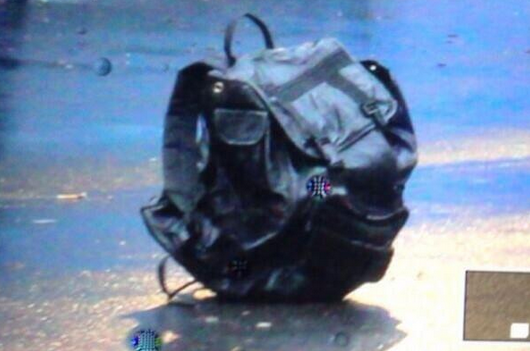
BOSTON — Potential jurors stared intently at Boston Marathon bombing suspect Dzhokhar Tsarnaev as jury selection in his federal death penalty trial began Monday under tight security.
Tsarnaev, flanked by his attorneys, sat at a table in the front of the jury assembly room. Wearing a dark sweater and khaki trousers, he picked at his beard, looked at the potential jurors and looked at the judge.
Over the next three days, about 1,200 people will be called to federal court to be considered as potential jurors. The first 200 were given initial instructions Monday by Judge George O’Toole Jr. Twelve jurors and six alternates are to be selected.
The judge said the trial will begin on Jan. 26 and will last three to four months.
The courthouse was under tight security Monday, with dozens of police officers inside and outside the building. One bombing victim, Karen Brassard, was outside the jury room waiting to observe jury selection. There were no Tsarnaev supporters outside the courthouse as there have been during pretrial hearings.
The jury will decide whether Tsarnaev planned and carried out the twin bombings that killed three people and injured more than 260 near the finish line of the race on April 15, 2013.
If they find him guilty, they also will decide whether he should be put to death. Survivors and first responders are among those expected to testify.
Heather Abbott, of Newport, Rhode Island, who lost her left leg below the knee in the attacks, said her biggest question may be an unanswerable one: “Why?”
“I don’t know whether I’ll ever get any answer to that question, but I guess I want to understand what the thought process was,” said Abbott, who plans to attend some of the proceedings. “Why he would want to do this to people … it’s really hard to understand.”
The trial, which likely will last several months, is perhaps the most scrutinized case of its kind since Timothy McVeigh was convicted and executed for the 1995 Oklahoma City bombing.
Tsarnaev’s lawyers tried for months to get the trial moved, arguing the Boston jury pool was tainted because of the number of locals with connections to the race. They drew parallels to the McVeigh case, which was moved to Denver for similar reasons. But U.S. District Judge George O’Toole Jr., who is presiding over the case, refused.
Jury selection is expected to be a lengthy process because of extensive media coverage and the thousands of runners, spectators and others in the area affected by the bombings. The process also could be slowed if potential jurors express objections to the death penalty.
Prosecutors say 21-year-old Dzhokhar and his brother, Tamerlan Tsarnaev — ethnic Chechens who had lived in the United States for about a decade — carried out the bombings as retaliation for U.S. actions in Muslim countries. Tamerlan, 26, died after a firefight with police several days after the bombings.
The defense is expected to argue that Dzhokhar had a difficult childhood and was heavily influenced by his elder brother, who authorities believe became radicalized in the last few years of his life, including during a six-month trip to Dagestan and Chechnya in 2012.